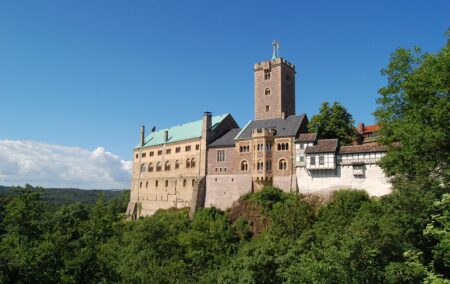The Alternative for Germany (AfD), a right-wing Eurosceptic party, surged in an election in the east German state of Thuringia at the weekend.
The party saw its vote share more than double, jumping from 10.6% to 23.4%. This doubled its share of seats in the 90-member state legislature, from 11 to 22.
The Left was the biggest party in the state, with 29 seats, and 31% of the vote, a slight improvement on the previous state election in 2014.
The two establishment parties in Germany, the Social Democrats (SPD) and the Christian Democratic Union (CDU), continued to decline, a trend that has been evident in Germany for some time. The CDU saw its vote share collapse from 33.5% (34 seats) to 21.8% (21 seats). The SPD lost four seats to finish with eight, and won 8.2% of the vote. The Greens and the Free Democrats (FDP) each won five seats.
The AfD’s surge has worried some in Germany, with the party’s anti-liberal and anti-immigrant rhetoric echoing the country’s fascist past.
According to the New York Times, the AfD is facing an internal battle between two factions, one led by the hard right, and a more moderate faction made up of disillusioned conservatives who left the CDU.
The AfD will not be part of a governing coalition, as all parties have declined to work with it, so a unique coalition made up of the Left and CDU could govern the state.
The AfD entered the German Parliament for the first time in 2017 with 12% of the vote, and is the second biggest party in five of Germany’s sixteen states.
The country could be in for some turbulent times as establishment parties such as the SPD and the CDU continue to lose significant vote share.
In a case study of how every vote counts, the FDP crossed the 5% threshold to gain representation by only five votes out of over 1.1 million cast. The party won 55 422 votes – 5.0004% of the vote. If the party had managed five fewer votes, it would have fallen short of the five percent threshold and failed to gain representation in the state parliament.

